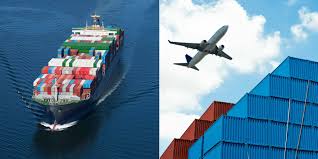
Understanding Nigeria’s 4% FOB Levy and Its Economic Implications
What is the 4% FOB Levy?
The Nigeria Customs Service (NCS) recently introduced a 4% Free-On-Board (FOB) levy on imports, as stipulated in the Nigeria Customs Service Act 2023. This levy is calculated based on the value of imported goods, including transportation costs incurred up to the port of loading. According to NCS spokesman Abdullahi Maiwada, the objective of the levy is to enhance the efficiency of the service and increase government revenue.
Concerns from Industry Experts
Despite the NCS’s justification for the levy, financial analysts and industry stakeholders have raised serious concerns about its economic impact. Many argue that the new charge will place an additional burden on businesses and consumers alike, ultimately worsening Nigeria’s already high inflation.
Dr. Wale Adegbite, former Chairman of the Manufacturers Association of Nigeria (MAN), Ogun Chapter, described the levy as "a disaster," warning that it will further destabilize an already struggling economy.
“Why would the government impose additional costs on businesses and consumers when inflation is already high? This policy will only lead to more price increases, making life even more difficult for Nigerians,” Adegbite stated.
The Impact on Businesses and Inflation
Experts have highlighted several ways in which the levy may negatively affect the economy:
- Increased Operational Costs for Businesses: Small and Medium Enterprises (SMEs), especially those dependent on imported raw materials, will face higher costs, leading to reduced profit margins and possible job losses.
- Higher Consumer Prices: Businesses will likely pass the additional costs onto consumers, further driving up the cost of goods and services.
- Disruptions to Supply Chains: Higher import costs may lead to shipment delays, reduced inventory, and increased scarcity of essential goods, further contributing to inflation.
Professor Evans Osabuohien of Covenant University warns that the levy will have a ripple effect across the economy. “This additional cost to be incurred through the 4% FOB charge will ultimately be transferred to consumers, leading to a further rise in Nigeria’s inflation rate,” he explained.
What’s Next?
The introduction of the levy has sparked debates among stakeholders, many of whom are urging the government to reconsider its implementation. While the NCS maintains that the charge is necessary for revenue generation, businesses and consumers are calling for alternative strategies that do not exacerbate economic hardships.
As discussions continue, the logistics and trade industry must stay informed about any policy adjustments and potential relief measures. Stakeholders are advised to closely monitor the situation and explore cost-mitigation strategies to navigate the evolving regulatory landscape.
REFERENCE
Punch Nigeria
Nairametrics.com
Businessday.ng
cnbcafrica.com

